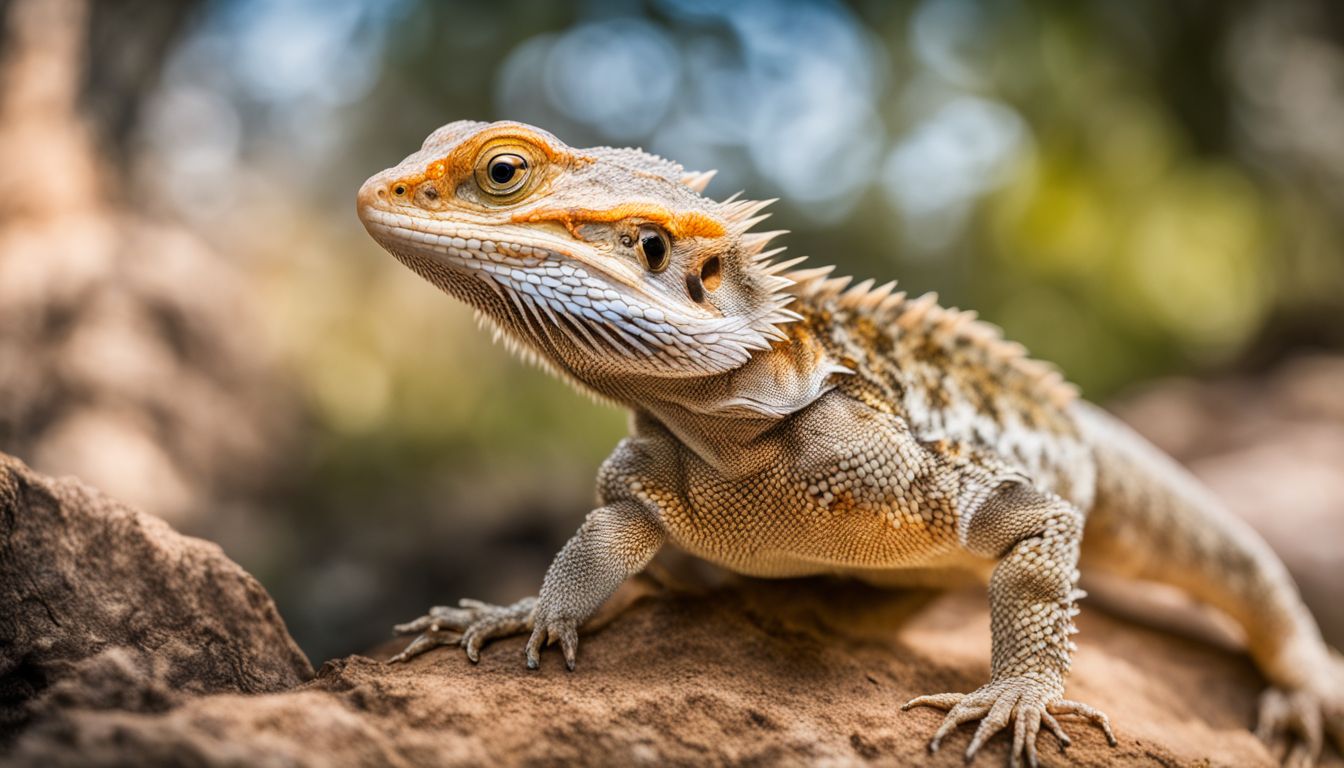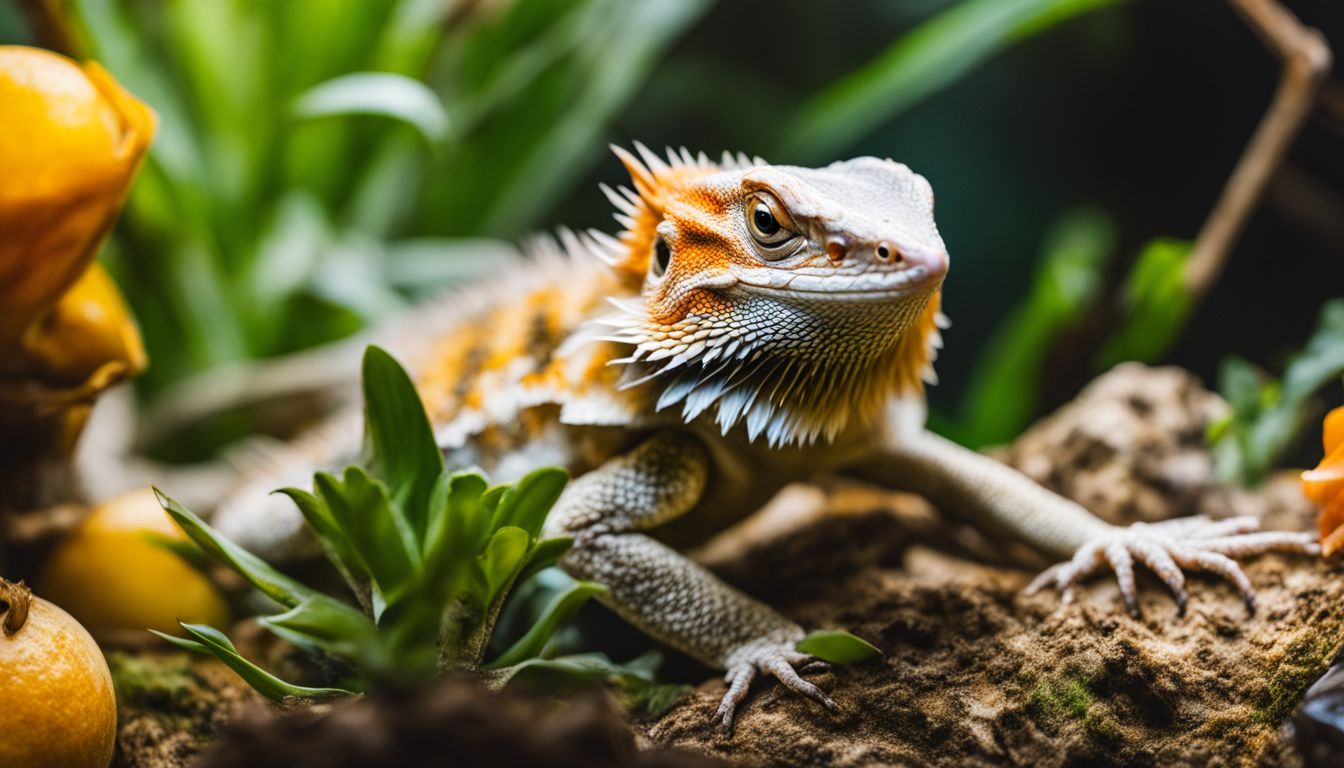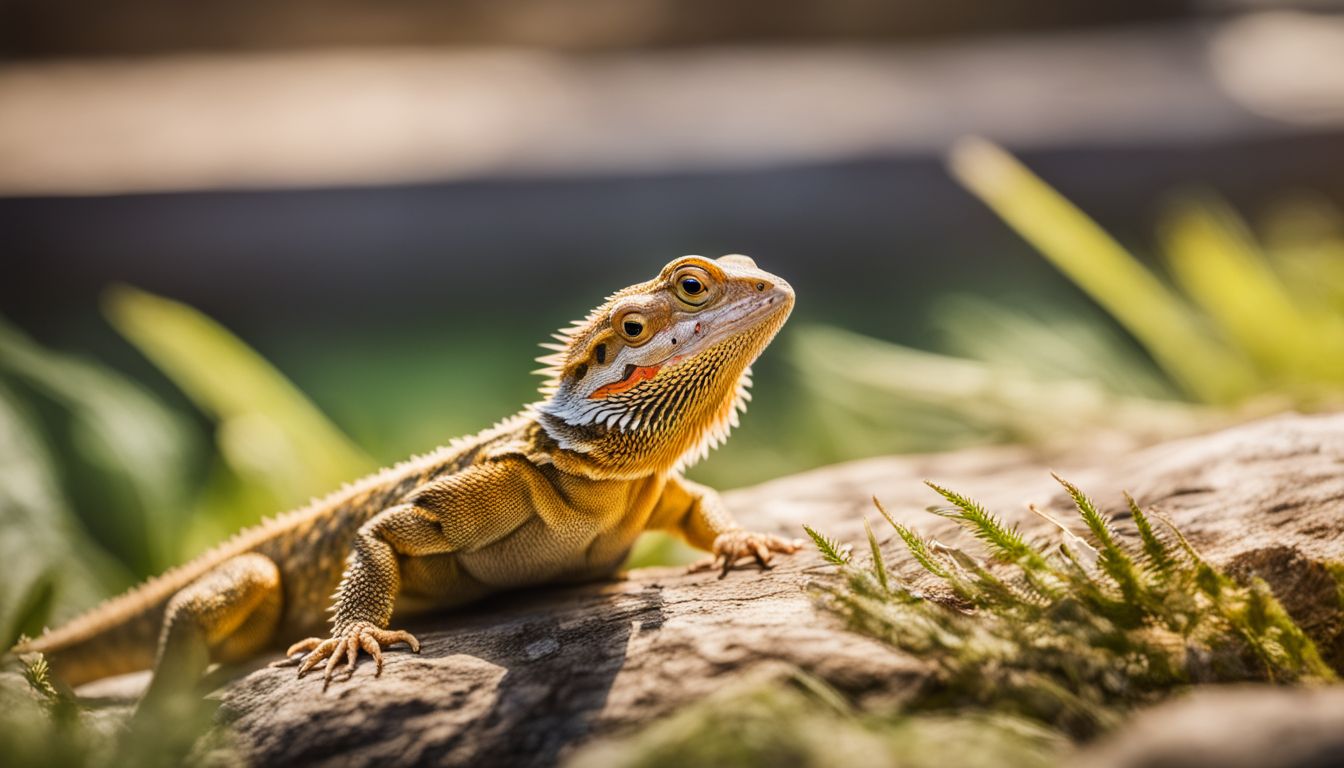Are you wondering if bearded dragons can snack on flies? Good news—bearded dragons can indeed eat certain types of flies. Today, we’re going to explore the safe options and those better left untouched, ensuring your scaly friend stays healthy and happy.
Don’t miss out on these insights!
Can Bearded Dragons Eat Flies?

Bearded dragons can eat flies. Fruit flies and house flies are suitable for their diet.
Risks and Benefits of Feeding Flies
Feeding bearded dragons flies comes with its own set of risks and benefits. It’s a topic that often sparks curiosity among novices in the reptile-keeping world. Let’s dive into the specifics to understand better what’s at stake and what’s to gain.
| Risks | Benefits |
|---|---|
| Wild-caught insects, including flies, can expose bearded dragons to harmful pesticides. | Flies provide enrichment, encouraging natural hunting behaviors in bearded dragons. |
| There’s a potential for disease transmission from flies to bearded dragons. | In a controlled environment, flies can be part of a varied diet, offering some nutritional value. |
| Fruit flies are small and invasive, making them less ideal as a food source. | Feeding certain types of commercially bred flies can ensure a pesticide-free snack. |
| Wild caught insects may lack the necessary nutrition that bearded dragons need. | When part of a balanced diet, flies can add diversity, preventing dietary boredom. |
Each point underscores the importance of being mindful about where the flies come from. Cultivating or purchasing flies from reputable sources can mitigate many of the risks associated with feeding these insects to bearded dragons. Meanwhile, variety remains the spice of life—even for these reptile companions. Flies, under the right circumstances, can contribute positively to their well-being.
The Types of Flies Bearded Dragons Can Eat

Bearded dragons can eat fruit flies and house flies as part of their diet, providing them with essential nutrients – discover more about how to safely incorporate these insects into your pet’s meals.
Fruit Flies
Fruit flies make a great snack for bearded dragons, especially baby ones. They’re small and high in calcium, which supports healthy bone growth. Feeding fruit flies to your reptile is easy and safe.
These insects can become a part of their balanced diet without much hassle.
However, it’s important to manage fruit flies in the vivarium carefully. If not controlled, they could become an issue. Make sure you introduce them into your bearded dragon’s diet in moderation and observe how they impact the environment inside the vivarium.
This ensures that both your bearded dragon gets nutritious food and the vivarium stays clean.
House Flies
House flies might seem like an easy snack for your bearded dragon, but they’re not the best choice. These insects don’t offer the right nutrition that your pet needs. Bearded dragons thrive on a diet of live insects that provide essential nutrients, and house flies fall short in this area.
It’s important to focus on feeding habits that match the nutritional needs of bearded dragons to keep them healthy and happy.
Offering dead house flies is also a no-go. Your bearded dragon won’t benefit from them since live prey stimulates their hunting instincts and contributes to their overall well-being.
Instead, opt for suitable insects recommended in a proper diet for pet bearded dragons, ensuring these critters are alive to maintain natural feeding behaviors.
Why Avoid Wild Flies?
Avoid wild flies due to the potential diseases they carry, which can harm your bearded dragon’s health. To find out more about the risks and benefits of feeding flies to your pet, read on!
Potential Diseases Carried by Flies
Flies can carry and transmit more than 100 diseases to both humans and animals. These diseases include serious illnesses such as cholera, dysentery, salmonellosis, tuberculosis, and typhoid fever.
Additionally, zoonotic parasites can be spread through contact with infected flies, posing a significant health risk for both bearded dragons and their owners. It is crucial to understand the potential dangers associated with feeding wild flies to pet reptiles as it could lead to severe infections or diseases.
Insectborne diseases transmitted by flies present a serious public health concern due to their ability to spread various pathogens through contamination. Therefore, it’s essential to be mindful of the risks posed by allowing bearded dragons access to wild flies in order to safeguard their health and well-being.
Alternative Foods for Bearded Dragons
Bearded dragons can thrive on a varied diet consisting of live foods like mealworms and beetles, along with fresh vegetables and fruits. Providing this diverse range of nutritious options ensures balanced nutrition for your pet reptile.
Live Foods
Bearded dragons require live insects as part of their diet to stay healthy and active. Feeding them a variety of nutritious insects is essential for their well-being:
- Mealworms, superworms, and crickets are important live food options for bearded dragons.
- Young bearded dragons need more insects than vegetables in their diet.
- It’s crucial to offer live insects in a way that reduces stress and allows natural feeding behaviors.
- Maintaining the health of both the reptile and its live food requires careful consideration and proper maintenance.
Mealworms and Beetles
Moving on from live foods, let’s talk about mealworms and beetles:
- Mealworms are a popular choice for feeding bearded dragons due to their high protein content and calcium supply.
- However, juvenile bearded dragons should not consume mealworms that have transformed into beetles or are still in their mealworm state.
- While mealworms can provide essential nutrients, they should not be the primary insect in a bearded dragon’s diet to maintain a balanced nutrition plan.
- Darkling beetles, created from mealworms, are rich in protein but lack other crucial nutrients, making them less suitable for a well-rounded diet.
Vegetables
Bearded dragons can eat a variety of vegetables to maintain a balanced diet, providing essential nutrients for their growth and overall health. Here are some safe and nutritious vegetable options to consider for your bearded dragon’s diet:
- Kale: Rich in vitamins A and C, kale is an excellent choice for bearded dragons. It provides essential nutrients while promoting overall health.
- Collard Greens: High in calcium and low in phosphorus, collard greens are beneficial for maintaining strong bones and preventing metabolic bone disease in bearded dragons.
- Mustard Greens: These leafy greens are packed with antioxidants and fiber, contributing to digestive health and supporting the immune system of bearded dragons.
- Butternut Squash: A good source of vitamin A and fiber, butternut squash can add variety to your bearded dragon’s diet while providing essential nutrients.
- Acorn Squash: With its high water content, acorn squash helps keep bearded dragons hydrated while offering vitamins and minerals essential for their well-being.
- Spaghetti Squash: Low in fat and rich in fiber, spaghetti squash is a nutritious option that supports digestive health in bearded dragons.
Fruits
Bearded dragons can eat a variety of fruits as part of their balanced diet.
- Some safe fruits for bearded dragons include apples and peaches, but they should be given in limited amounts to avoid health issues.
- It’s important to note that fruits such as strawberries have little nutritional value for bearded dragons and should be avoided.
- Bearded dragons can also enjoy other fruits like bananas and blueberries, but moderation is key to maintaining a healthy diet.
- When feeding your pet, consider offering a diverse range of fruits to provide essential vitamins and minerals while keeping an eye on portion sizes.
Conclusion
In sum, bearded dragons can eat fruit flies and some other types of flies. However, it’s important to avoid wild flies due to potential diseases they may carry. Providing a varied diet with live insects, mealworms, beetles, vegetables, and fruits ensures their nutritional needs are met.
Always prioritize the health and safety of your pet when considering their dietary options.
FAQs
1. Can bearded dragons eat flies?
Yes, bearded dragons can eat flies as part of their diet, but they should be fed in moderation and only from trusted sources.
2. Are all types of flies safe for bearded dragons to consume?
Not all types of flies are safe for bearded dragons. It’s important to avoid feeding wild-caught or pesticide-exposed flies and stick to commercially bred ones.
3. How often can I feed my bearded dragon with flies?
Flies can be offered as an occasional treat, but they should not make up the primary portion of a bearded dragon’s diet.
4. What are the potential risks associated with feeding flies to a bearded dragon?
Feeding wild-caught or contaminated flies can expose your pet to parasites or toxins, leading to health issues.
5. Should I consider any alternatives if I cannot find safe fly sources for my pet?
If safe fly sources are unavailable, it is advisable to provide other nutritious insects such as crickets or roaches as a substitute for dietary variety and balance.




